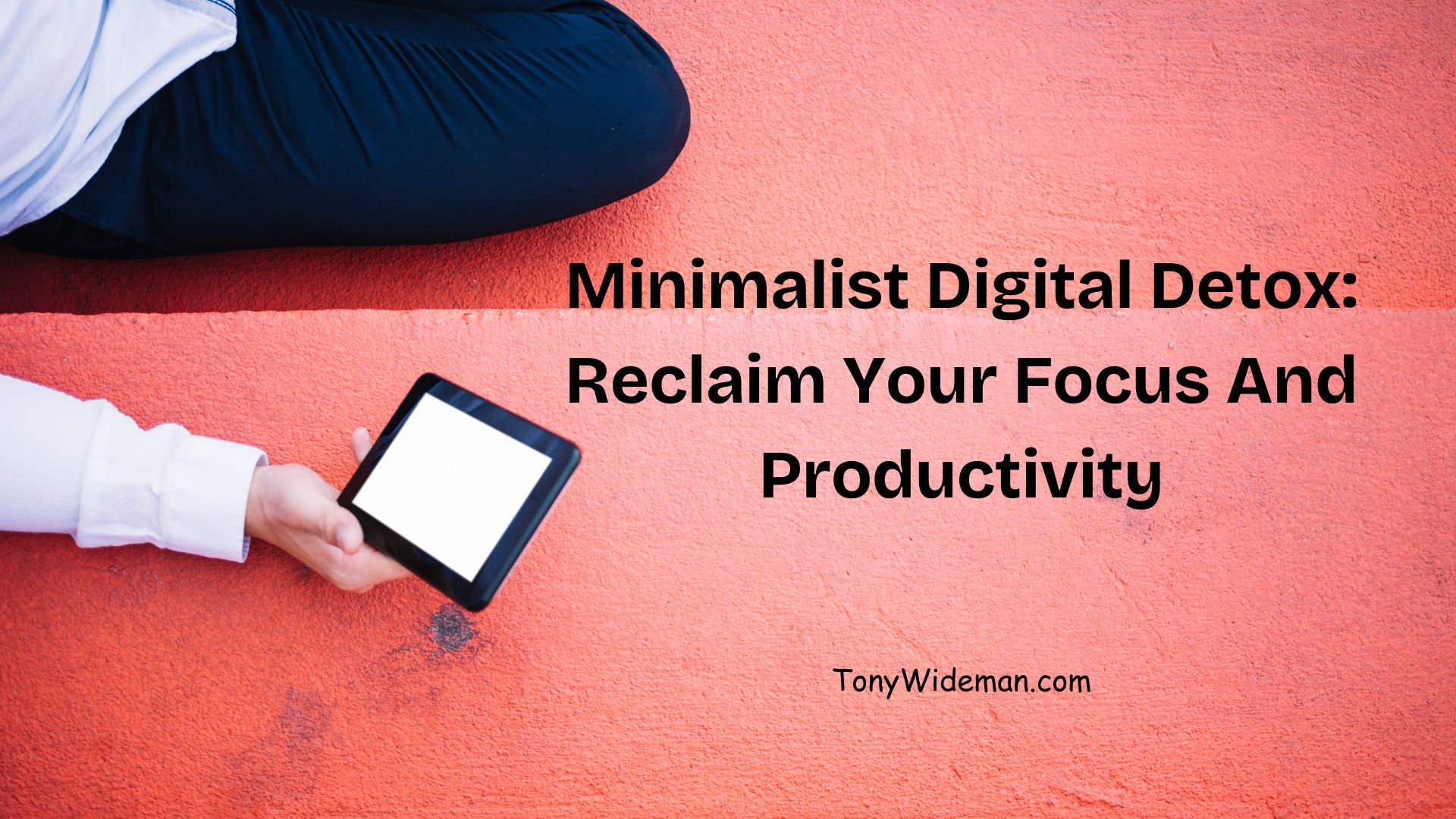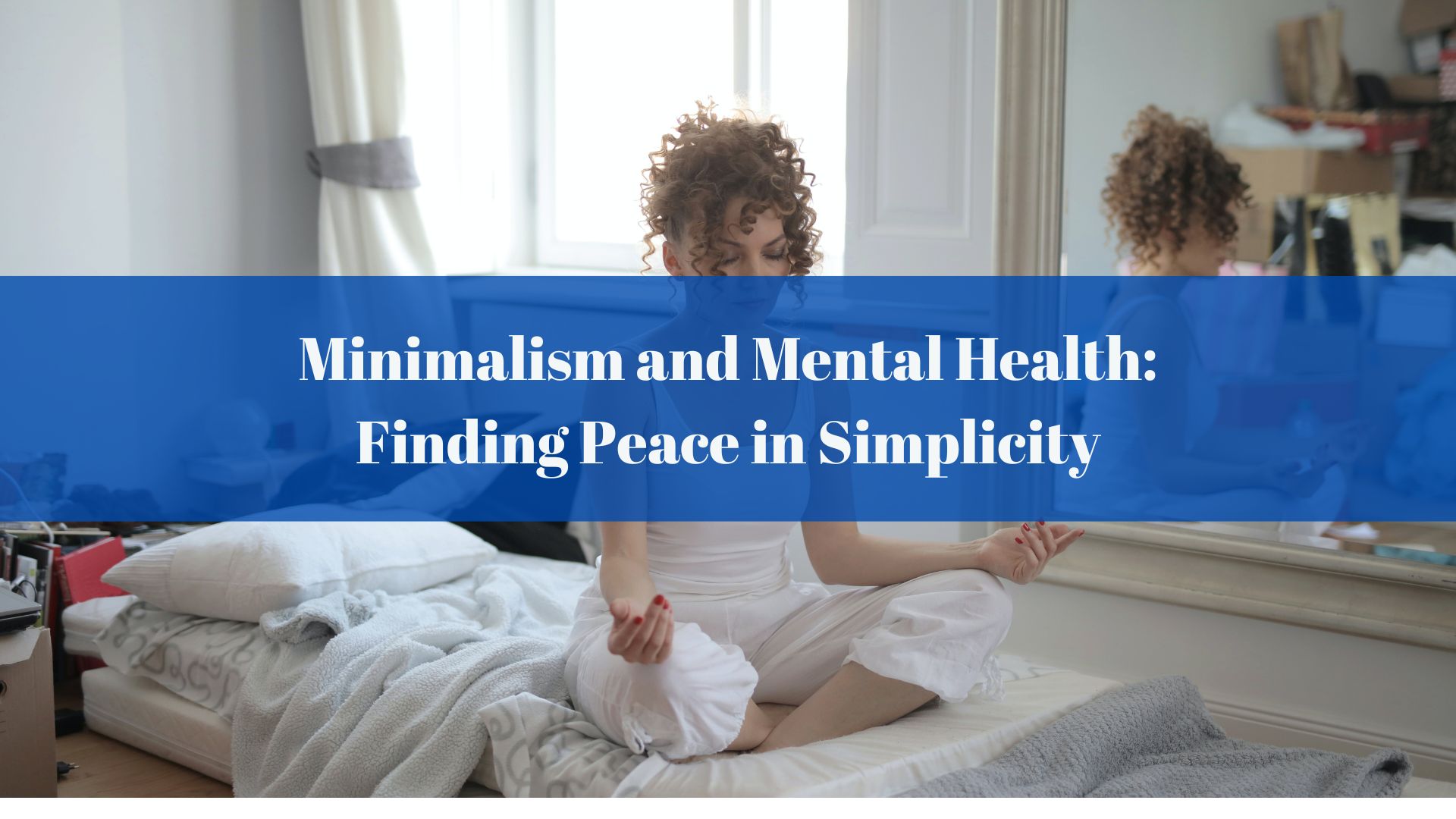Minimalist Digital Detox: Reclaim Your Focus And Productivity

Digital life can be overwhelming. We’re in a constant cycle of notifications, emails, and social media scrolling. The idea of a digital detox—especially the minimalist kind—means pulling back and taking control over what tech you let into your life.
Getting rid of digital clutter is more than just cutting screen time. It’s about being intentional with your digital tools and focusing on what truly adds value to your life, like spring cleaning for your tech habits.
Our minds need a breather from the digital noise. Constant digital engagement can complicate our concentration, stress us out, and sabotage our productivity. Have you ever stared at your screen and realized you achieved nothing? You’re not alone.
Imagine scrolling less and living more, focusing your energy on essential tasks. That’s where a minimalist digital detox comes in. It’s not about ditching tech entirely, but about making tech work for you, not against you.
Minimalist Digital Detox
In today’s hyper-connected world, the allure of digital devices is ever-present. While technology offers numerous benefits, its pervasive presence can lead to diminished attention spans and reduced productivity. The Minimalist Digital Detox Movement advocates for intentional breaks from digital engagement to restore balance and enhance well-being.
Understanding the Digital Detox Movement
The Digital Detox Movement encourages individuals to disconnect from digital devices—such as smartphones, tablets, and computers—to alleviate stress and improve mental clarity. By stepping away from screens, we can reconnect with the present moment and engage more deeply with our surroundings.
Strategies to Implement a Minimalist Digital Detox
Determining which digital tools are essential can significantly impact how you interact with technology. Start by listing the apps and devices you use daily and assessing their importance. It might be time to say goodbye if it’s not helping you achieve your goals or bringing joy.
Trust me, it’s essential to set clear boundaries. Determine when you’re available online and let others know. This helps prevent burnout and fosters genuine interactions in real life. It’s about finding balance and sticking to it.
Let’s discuss time management, a game-changer in digital detoxing. Designate tech-free zones and times in your day. Consider using calendar apps or timers to help manage your screen time and minimize distractions.
Automation is your friend here—Automate repetitive digital tasks to free up time and reduce mental load. Whether using email filters, scheduling social media posts, or autoresponders, it can help keep your digital life simple and stress-free.
It’s not a one-time thing but rather a lifestyle change. Regular detox practices are key. Periodically reassess your digital habits, continue refining your interactions with tech, and watch your productivity soar.
The Impact of Digital Overload
Continuous exposure to digital media can have several adverse effects:
- Mental Fatigue: Constant notifications and information overload can lead to cognitive exhaustion, making it challenging to focus on tasks.
- Sleep Disruption: The blue light emitted by screens interferes with melatonin production, disrupting sleep patterns and resulting in poor sleep quality.
- Decreased Productivity: Frequent digital distractions can fragment attention, resulting in reduced efficiency and longer task completion times.
Benefits of a Minimalist Digital Detox: Reclaiming Focus and Productivity
Streamlining your digital life leads to clearer thinking. Without constant notifications, your mind can focus better on what matters, whether a work project or personal passions.
Less screen time often means more productivity. You have more space to engage in meaningful activities when you aren’t jumping between apps. It’s about quality over quantity, making every moment count.
Stepping away from digital noise gives room for personal growth and reflection. You might pick up a new hobby or reconnect with long-lost interests. It’s surprising how much time we have when we’re not glued to our screens.
Real stories are powerful. Some individuals have adopted minimalist digital lifestyles, which have radically improved their focus and well-being. Hearing their journeys can be both inspiring and a practical guide.
Staying digital-clutter-free comes with long-term benefits. It helps create a sustainable lifestyle where focus and productivity are naturally higher. With consistent practice, you’re less likely to slip back into old habits.
Going on a minimalist digital detox offers numerous advantages:
- Enhanced Focus: Reducing digital distractions enables deeper concentration on tasks, leading to improved performance.
- Improved Mental Health: Taking breaks from digital engagement can help reduce anxiety and stress, promoting a sense of calmness.
- Better Sleep Quality: Limiting screen time, especially before bedtime, can lead to more restful and restorative sleep.
- Strengthened Relationships: Disconnecting from devices fosters more meaningful in-person interactions, enhancing personal connections.
[adrotate group=”9″]
[adrotate group=”12″]
Practical Steps to Implement a Minimalist Digital Detox
Incorporating a minimalist digital detox into your routine can be straightforward:
- Set Specific Goals: Determine where digital reduction would be most beneficial, such as during meals or before bedtime.
- Create Tech-Free Zones: Designate specific areas in your home, such as the dining room or bedroom, as device-free spaces to encourage mindful presence.
- Schedule Regular Breaks: Allocate specific times during the day to step away from digital devices, allowing your mind to rest and recharge.
- Engage in Offline Activities: Pursue hobbies and activities that don’t involve screens, such as reading, gardening, or exercising, to enrich your daily life.
- Use Digital Well-being Tools: Utilize apps and device settings that monitor and limit screen time to help manage digital consumption effectively.
Overcoming Challenges in Digital Detoxification
While the benefits are clear, embarking on a digital detox can present challenges:
- Fear of Missing Out (FOMO): The anxiety of missing essential updates can deter individuals from disconnecting. To combat this, reassure yourself that crucial information will still be accessible later.
- Habitual Usage: Breaking the habit of constant device checking requires conscious effort. Gradually reducing screen time can make the transition to a healthier lifestyle smoother.
- Social Expectations: In a culture that values instant communication, setting boundaries may require explaining your detox intentions to friends and colleagues.
The Future of the Digital Detox Movement
As awareness of the impacts of digital overload grows, the Digital Detox Movement is gaining momentum. Increasingly, more individuals and organizations recognize the importance of striking a balance between digital engagement and offline activities to promote overall well-being.
Conclusion
Embracing the Minimalist Digital Detox Movement empowers individuals to reclaim their focus and productivity. Intentionally disconnecting from digital devices can enhance mental clarity, improve relationships, and lead to more fulfilling lives. Consider taking the first step towards a digital detox today and experience its transformative benefits.
[adrotate group=”9″]
[adrotate group=”12″]






